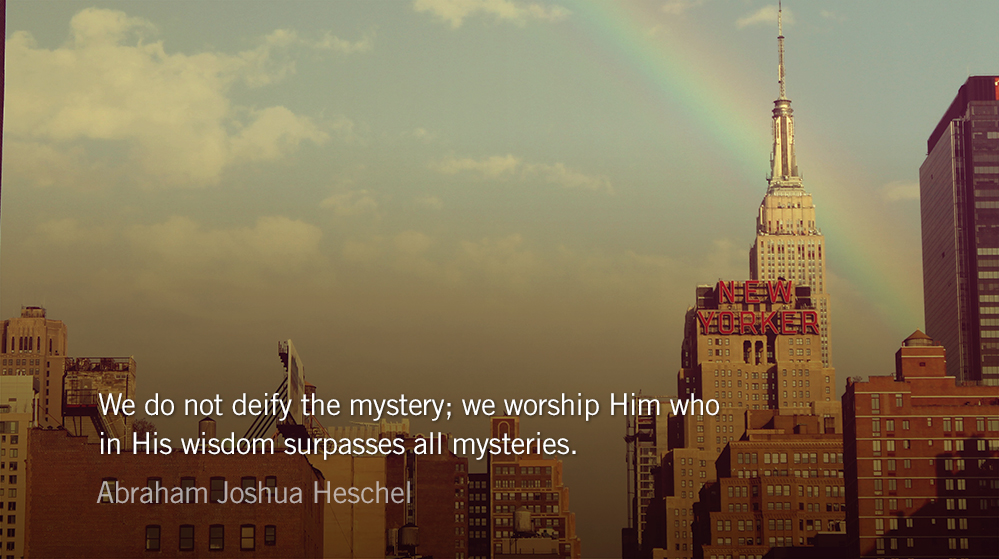We do not deify the mystery; we worship Him who in His wisdom surpasses all mysteries.
―Abraham Joshua Heschel
Scripture: 75.2-3
At the set time that I appoint I will judge with equity. When the earth totters, and all its inhabitants, it is I who keep steady its pillars.
Reflection: Beyond the Mystery is Mercy
By Abraham Joshua Heschel (1907-1972)
The sense of the ineffable, the awareness of the grandeur and mystery of living, is shared by all men, and it is in the depth of such awareness that acts and thoughts of religion are full of meaning. The ideas of religion are an answer, when the mystery is a problem. When brought to the level of utilitarian thinking, when their meaning is taken literally as solutions to scientific problems, they are bound to be meaningless.
God’s power is not arbitrary. What is mysterious to us is eternally meaningful as seen by God. There are three attitudes toward [this] mystery: the fatalist, the positivist, and the Biblical.
To the fatalist, mystery is the supreme power controlling all reality. He believes that the world is controlled by an irrational, absolutely inscrutable and blind power that is devoid of either justice or purpose.
A tragic doom is hanging over the world, to which gods and men alike are subject, and the only attitude one may take is that of resignation. It is a view that is found in various forms and degrees in nearly all pagan religions, in many modern philosophies of history (history as a cycle of becoming and decay), as well as in popular thinking.
The positivist has a matter-of-fact orientation. To him the mystery does not exist; what is regarded as such is simply that which we do not know yet, but shall be able to explain some day. The logical positivist maintains that all assertions about the nature of reality or about a realm of values transcending the familiar world are meaningless and that, on the other hand, all meaningful questions are in principle answerable.
The awareness of mystery was common to all men of antiquity. It was the beginning of a new era when man was told that the mystery is not the ultimate; that not a demonic, blind force but a God of righteousness rules the world.
The theology of fate knows only a one-sided dependence upon the ultimate power. That power has neither concern for man nor need of him. History runs its course as a monologue. To Jewish religion, on the other hand, history is determined by the covenant: God is in need of man. The ultimate is not a law but a judge, not a power but a father.
*Excerpted and abridged from God in Search of Man by Abraham Joshua Heschel.
Prayer: The Refrain for the Morning Lessons
Then shall all the trees of the wood shout for joy before the Lord when he comes, when he comes to judge the earth. —Psalm 96.12
– From The Divine Hours: Prayers for Springtime by Phyllis Tickle.
Full prayer available online and in print.
Today’s Readings
Numbers 31 (Listen – 5:52)
Psalm 75-76 (Listen – 2:33)






